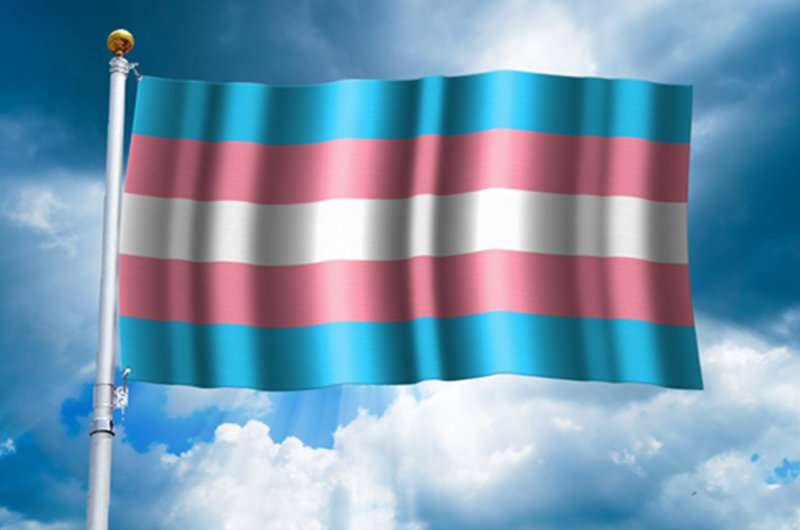Credit: Drexel University
In October, major news outlets like The New York Times ran articles with headlines like "Transgender' Could Be Defined Out of Existence Under Trump Administration." Here, the Office of Equality and Diversity's Associate Director of Education and Prevention Jesse Krohn explained what that would mean.
Q: What is the story behind the hashtag #WontBeErased?
A: Essentially, The New York Times obtained a draft memo showing that the Department of Health and Human Services was privately considering using a definition of the word "sex" as "either male or female, unchangeable, and determined by the genitals that a person is born with." Under that definition, laws that prohibit discrimination on the basis of "sex" would be interpreted by federal agencies (like the departments of Health and Human Services, Justice, Labor and Education) to exclude transgender and non-binary individuals and others with gender identities that do not align with their sex assigned at birth. To clarify, these agencies would hold that the laws do not cover or protect individuals experiencing discrimination or harassment on the basis of gender identity or gender expression or sexual orientation—just sex assigned at birth.
Q: Is this actually happening? If so, when?
A: Nothing official has been announced, so this is all speculation. There are rumors based on leaks that this definition will be propounded to relevant federal agencies by the end of the year. But again, nothing official has been announced.
Q: What does this mean for the Drexel community?
A: Drexel's internal policies already and will continue to explicitly prohibit discrimination or harassment on the basis of sexual orientation, gender identity and gender expression. And, because we are located in Philadelphia, our community is also protected by local and state law. The Pennsylvania Human Relations Commission recently released new guidance expanding the definition of the term "sex" under the Pennsylvania Human Relations Act to include "sex assigned at birth, sexual orientation, transgender identity, gender transition, gender identity and/or gender expression depending on the individual facts of the case." The Philadelphia Fair Practices Ordinance also explicitly applies to gender identity and sexual orientation.
But not every institution, locality or state has the same protections as Drexel, Philadelphia or Pennsylvania. If the term does end up being redefined, federal civil rights laws pertaining to, for example, employment, education and healthcare could provide limited protections.
Q: Should our LGBTQ+ students, faculty and staff be worried?
A: It is not helpful to tell people not to worry. Even if this action never takes place, it is hard to overstate the existential anxiety leaks like these provoke. It makes people feel afraid, destabilized and stigmatized. However, practically speaking, lawsuits from civil rights organizations and other institutional plaintiffs would be filed immediately, and there is a significant and growing amount of legal precedent out there that this action would contradict. There are decades-old cases that protect, for example, people being harassed at school or work because of gender expression, and those precedents don't just disappear.
Q: Is the new proposed definition clearly illegal?
A: Unfortunately, there is a big hole in civil rights law pertaining to discrimination and harassment targeting members of the LGBTQ+ community. Federal civil rights law, and most states' civil rights laws, do not explicitly address sexual orientation, gender identity or gender expression—just "sex."
In the absence of laws that would close this gap, like the proposed Employment Non-Discrimination Act, courts have effectively protected LGBTQ+ people by stretching the definition of discrimination on the basis of "sex" to include gender identity, gender expression and sexual orientation. This is what the new definition would prohibit.
For example, consider a case where employment discrimination against a lesbian woman is deemed a form of discrimination on the basis of sex because the employer would not have discriminated against a man with a woman as a partner, but the employer is discriminating against a woman with a woman as a partner. Another example would be a court determining that educational discrimination against a transgender man is a form of discrimination on the basis of sex, because the school would not have discriminated against a person assigned male at birth who identifies as a man, but the school is discriminating against a person assigned female at birth who identifies as a man. Each case is fact-specific, and each judge interprets the law individually, which can cause confusion and stress.
Q: What can LGBTQ+ students, faculty, and staff do for support?
A: The University does offer important confidential resources like the Counseling Center, pastoral counselors in Spiritual and Religious Life and the Employee Assistance Program. There are also peer resources like the LBTQA+ Faculty and Professional Staff Network, LGBTQ+ student organizations and the Gender and Sexuality Resource Space. Questions can be directed to the Office of Equality and Diversity by email, phone (215.895.1405) or in person at the James E. Marks Intercultural Center (3225 Arch St.). Finally, it is important for our heterosexual and cisgender students and colleagues to remember that our LGBTQ+ students and colleagues need support and allies.
Provided by Drexel University






















